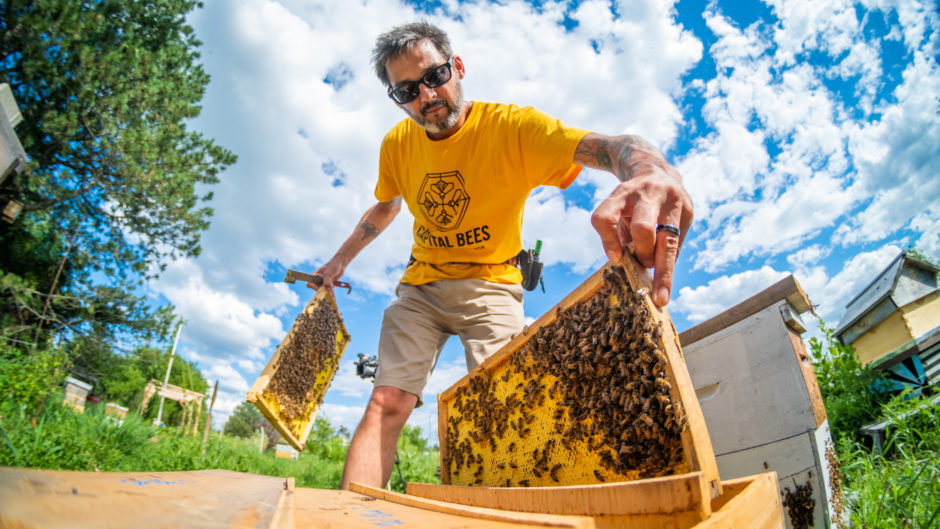Tucked into the east end of this city's Greenbelt lies a 60-hectare space where dozens of people — some with no previous experience in farming — spend days and weekends harvesting, weeding and growing something new.
As part of CBC Ottawa's series City Farmers, we'll introduce you to some of those people putting their passion for food sustainability into practice at the Just Food Farm.
Ron St. Louis
Standing in a clearing in his small plot of land, Ron St. Louis is surrounded by the hum of bees floating up from the 50 hives scattered around him.
He uses a bee smoker to blow black puffs into the air and calm the bees, then takes the wooden lid off one of the hives, removing the heavy frames one by one.
After examining five or six frames, he finally spots what he’s looking for — a larger bee with a blue dot on her back.
“Oh see, there's the queen.”
'I just fell in love right there.'
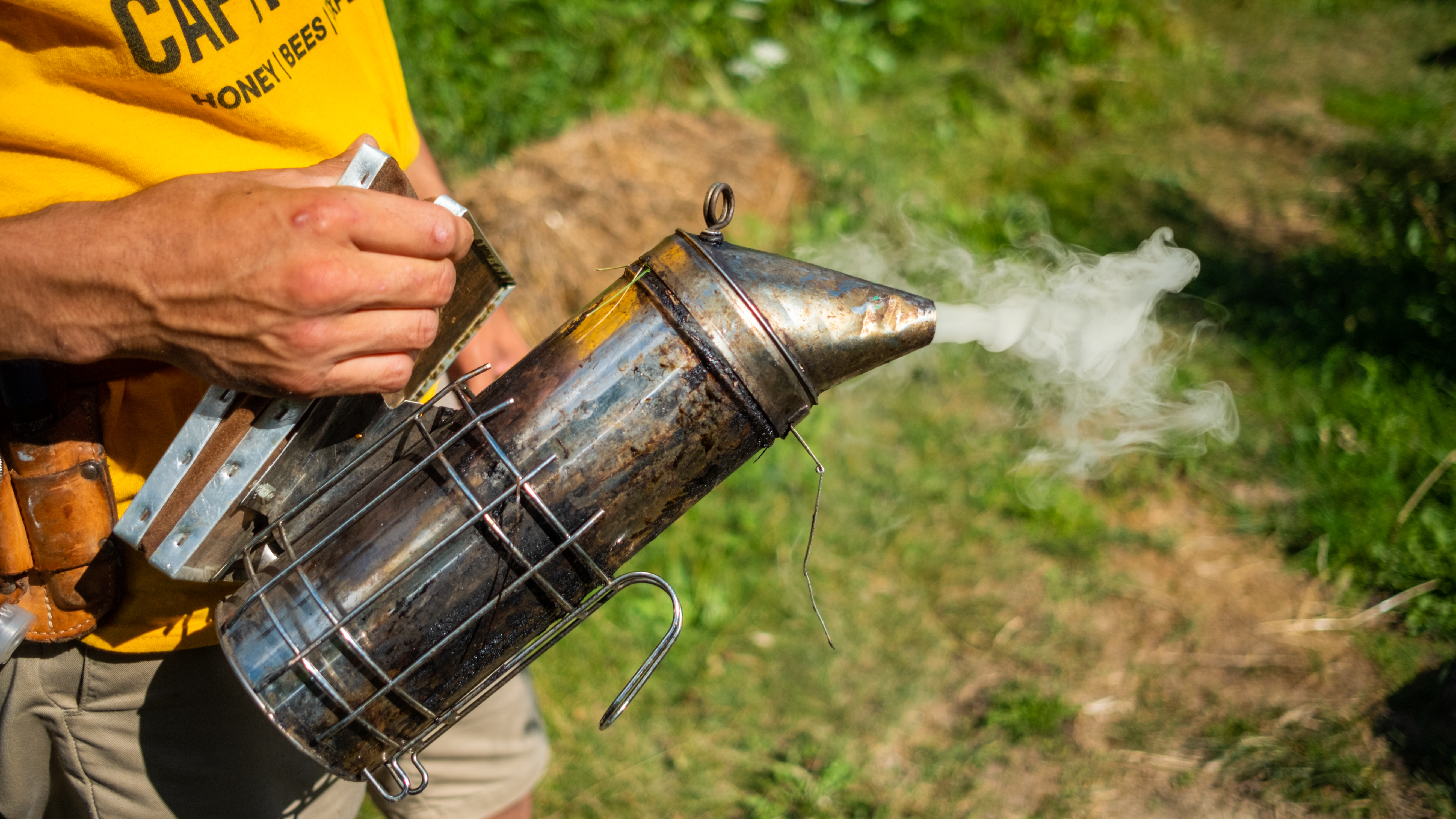
It’s the kind of demonstration he might give students in the workshops St. Louis typically runs through the warmer months.
His Capital Bees produces about 1,000 kilograms of honey a year. But his big focus is teaching new and aspiring beekeepers.
That is, until this season, when the pandemic forced him to put the program on hold.
Usually, he starts teaching in April, but “with so much uncertainty, we decided not to do it,” he said. “It would just be too much of a challenge.”
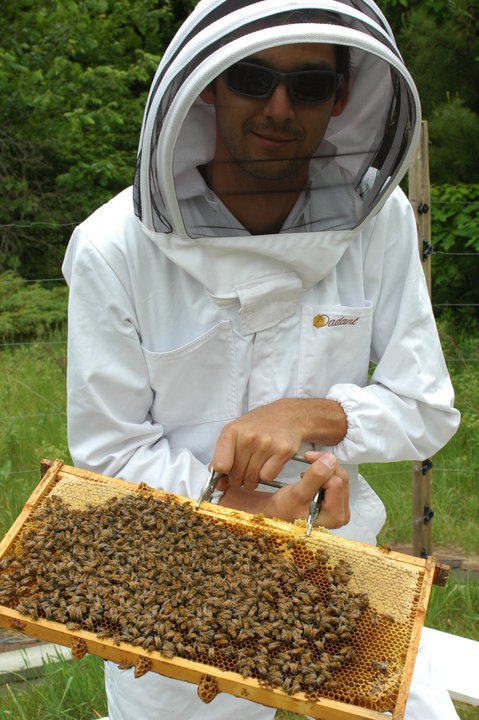
'Completely hooked'
St. Louis caught the bug for beekeeping a decade ago through his love of photography.
A fellow hobbyist extended an invitation to visit his beehives, and St. Louis thought they would make a great subject for the camera.
Then his friend handed over a frame vibrating with bees.
"I just fell in love right there … because they're so fascinating. Since then, I’ve been completely hooked.”
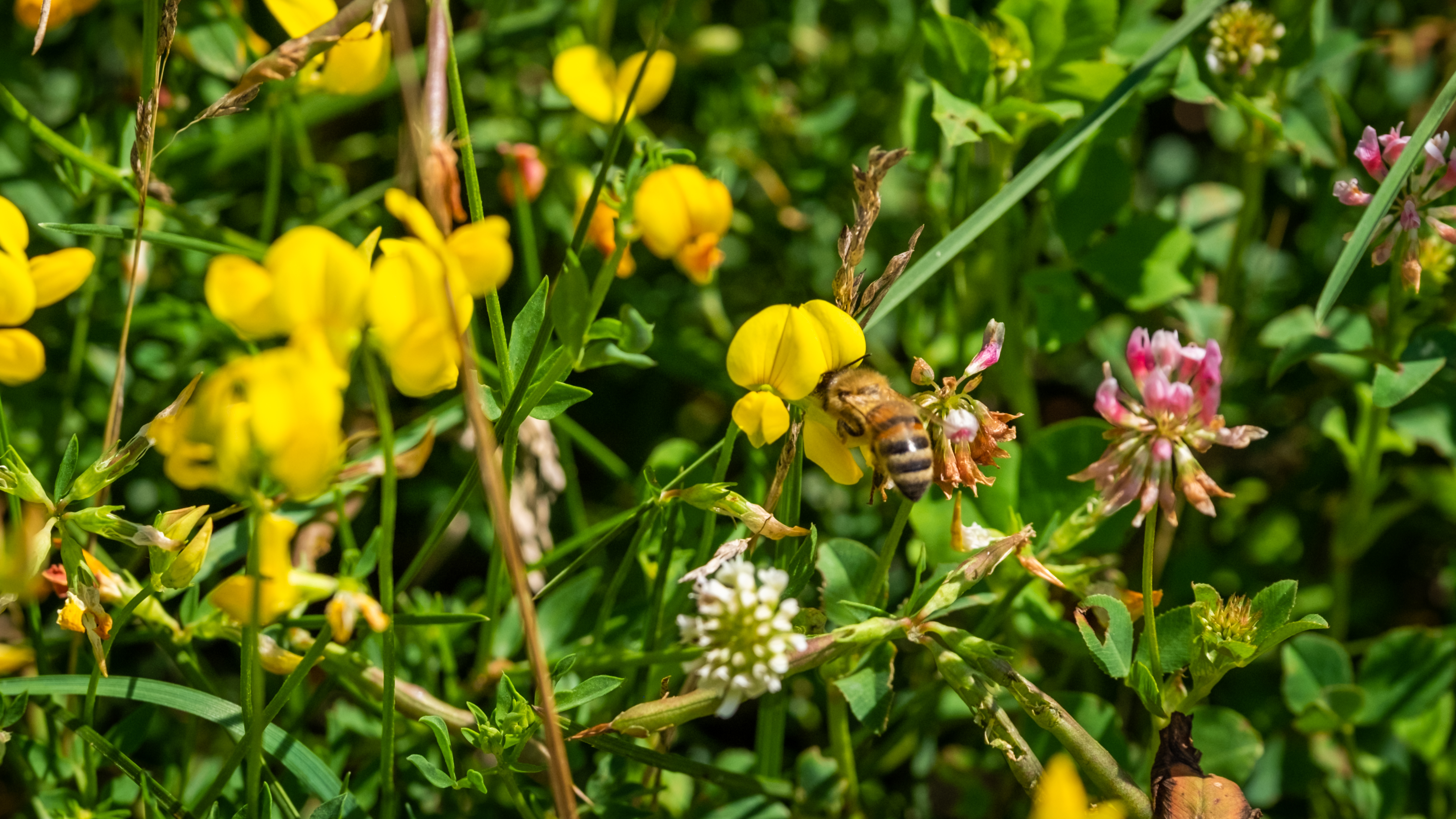
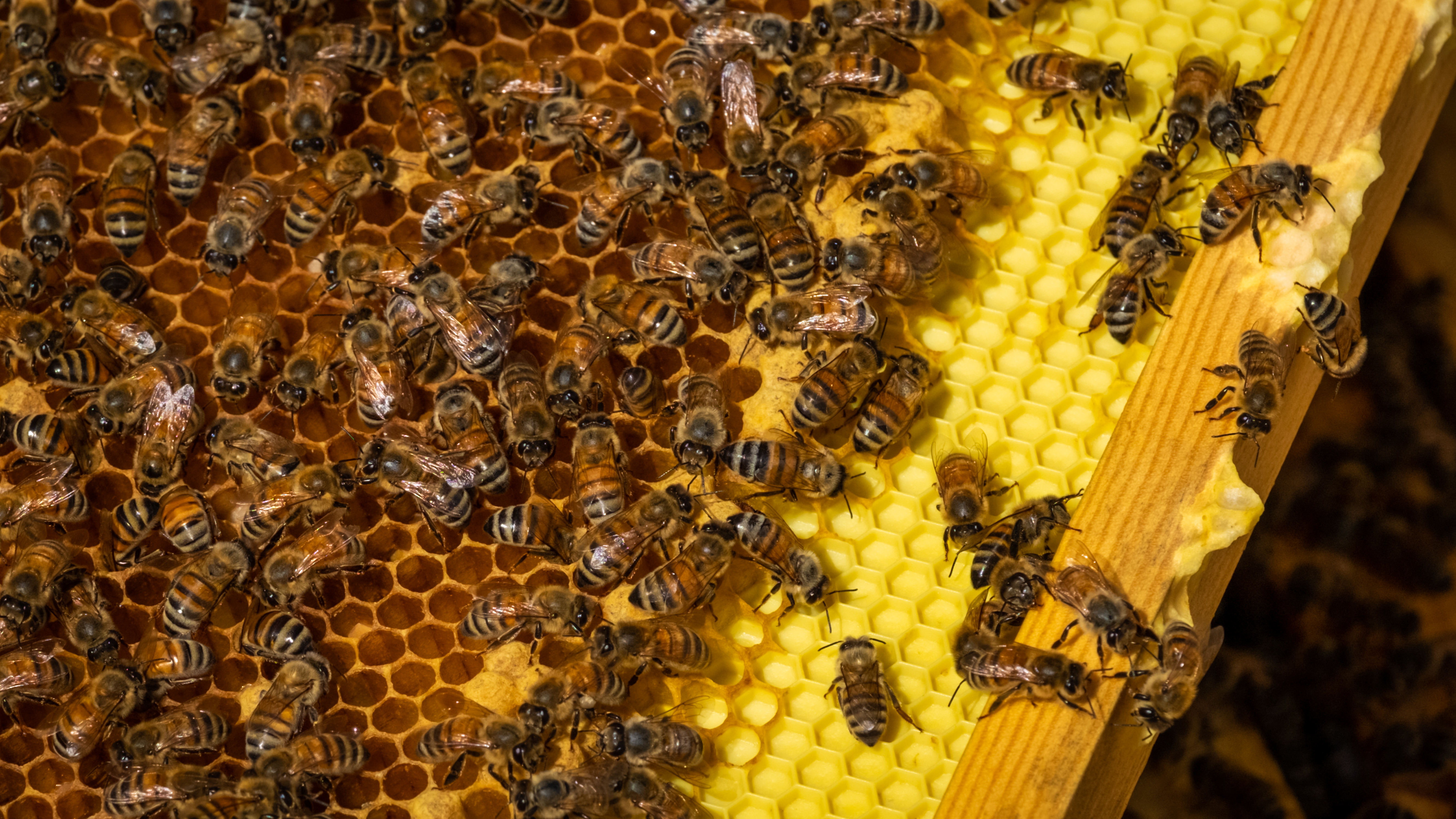
Mutual benefits
St. Louis brought his hives to the Just Food Farm in 2014 because the diversity of nearby fruits and vegetables makes it an ideal location for bees.
The shared farmland sits near a creek and meadows gone fallow with wildflowers, both good for bee health. The bees do their part for other farmers too, pollinating their crops.
By day, St. Louis works as a public servant. He’d been planning to take some time off to devote to beekeeping this summer when the pandemic hit.
His job went into high gear as the government dealt with COVID-19-related pressures. On top of that, his manager left this spring, leaving St. Louis to fill in the gaps and further increasing his workload.
“I couldn’t walk away from it,” he said.
Still, the demands at the farm didn’t go away, so he found himself working what felt like two full-time jobs and experiencing burnout.
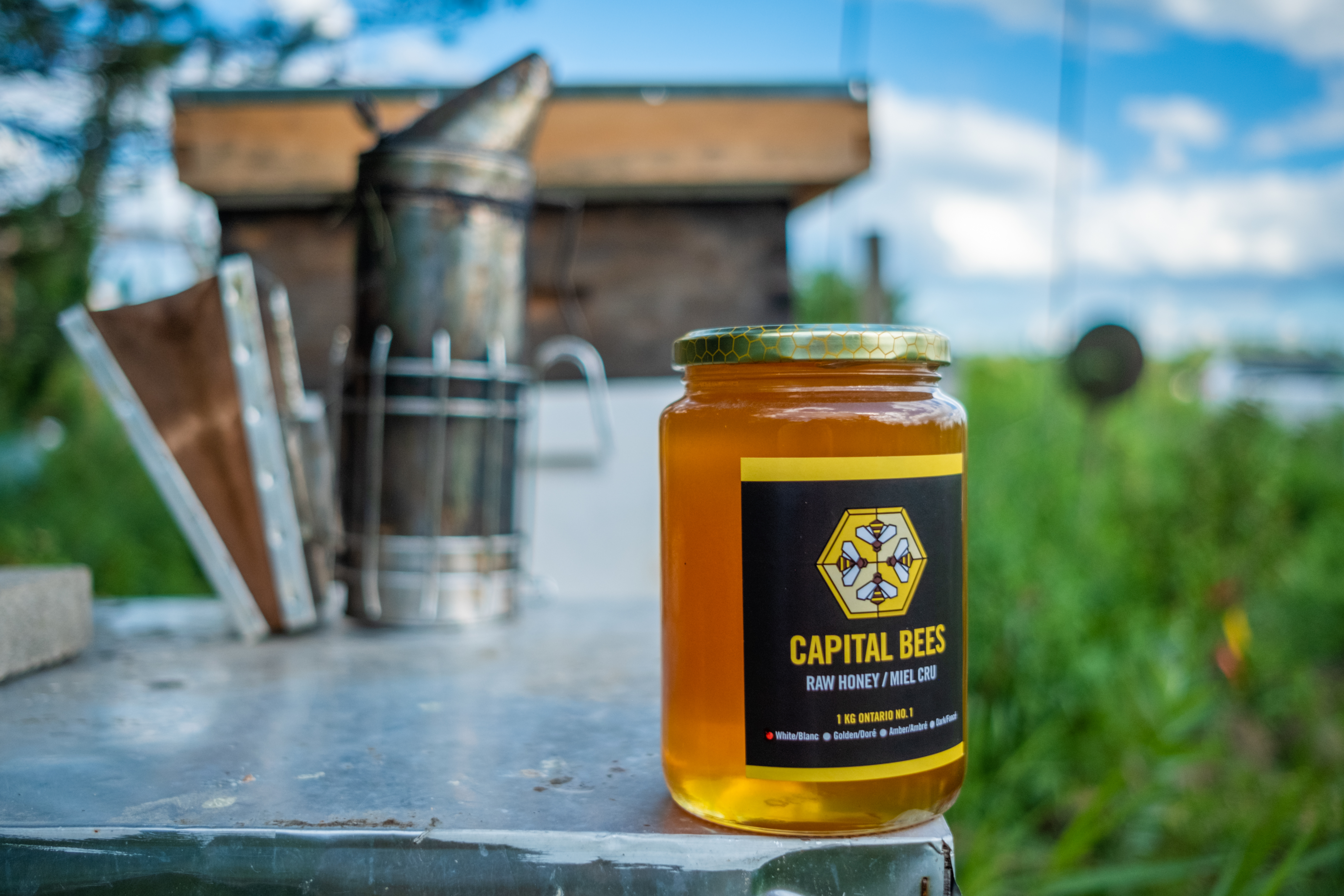
One foot in each world
The apiary is run by a slim team — St. Louis, his partner and one of his former students.
This summer, they’d committed to building a dedicated space for extracting honey in a small cargo container, which they dubbed the “honey house.”
It includes a dedicated machine which breaks the honeycomb wax layer “like a whole bunch of pizza rollers” before each frame is placed into a centrifuge that extracts the golden liquid.
“It will just rip all that honey out,” he joked as he watched the extractor spin, before straining the honey and pouring it into jars.
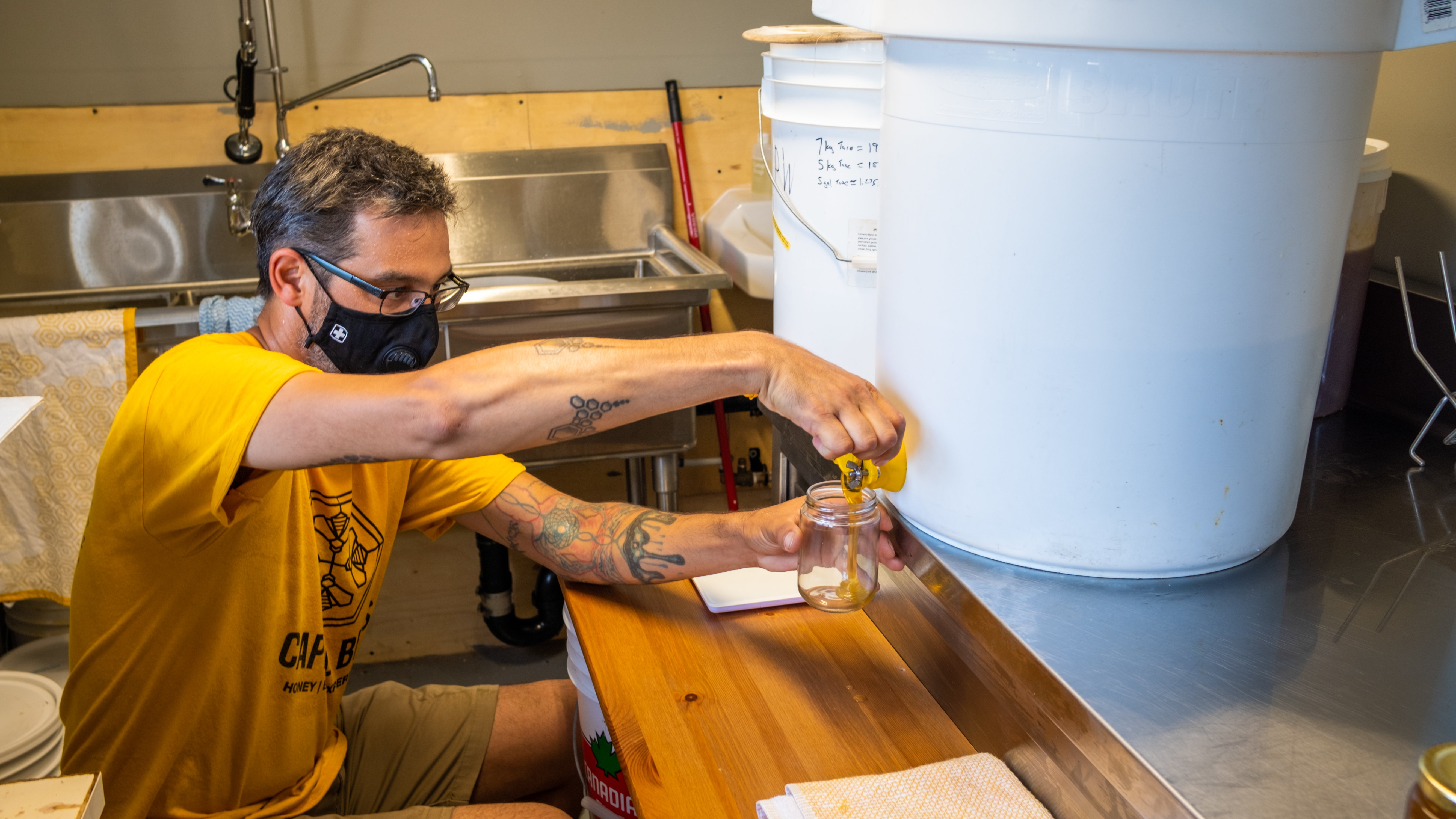
Having the honey house means St. Louis can stop processing honey in his kitchen at home, allowing him and the aspiring beekeepers he’s coaching to expand their practice.
It’s part of a gradual plan to one day transition out of his government job and become a full-time beekeeper and educator.
But St. Louis has concerns about how climate change will affect his bees, and acknowledges that running a business so dependent on the weather seems “reckless.”
“I’ve got one foot in each world right now,” he said.
The pandemic has reinforced one of the most appealing aspects of beekeeping — especially when work becomes overwhelming. It requires the beekeeper's total focus.
“When you’re here, you’re kind of away from everything else,” he said. “You can’t be thinking about your stress in your day job, because you’re holding a frame of a thousand bees.”
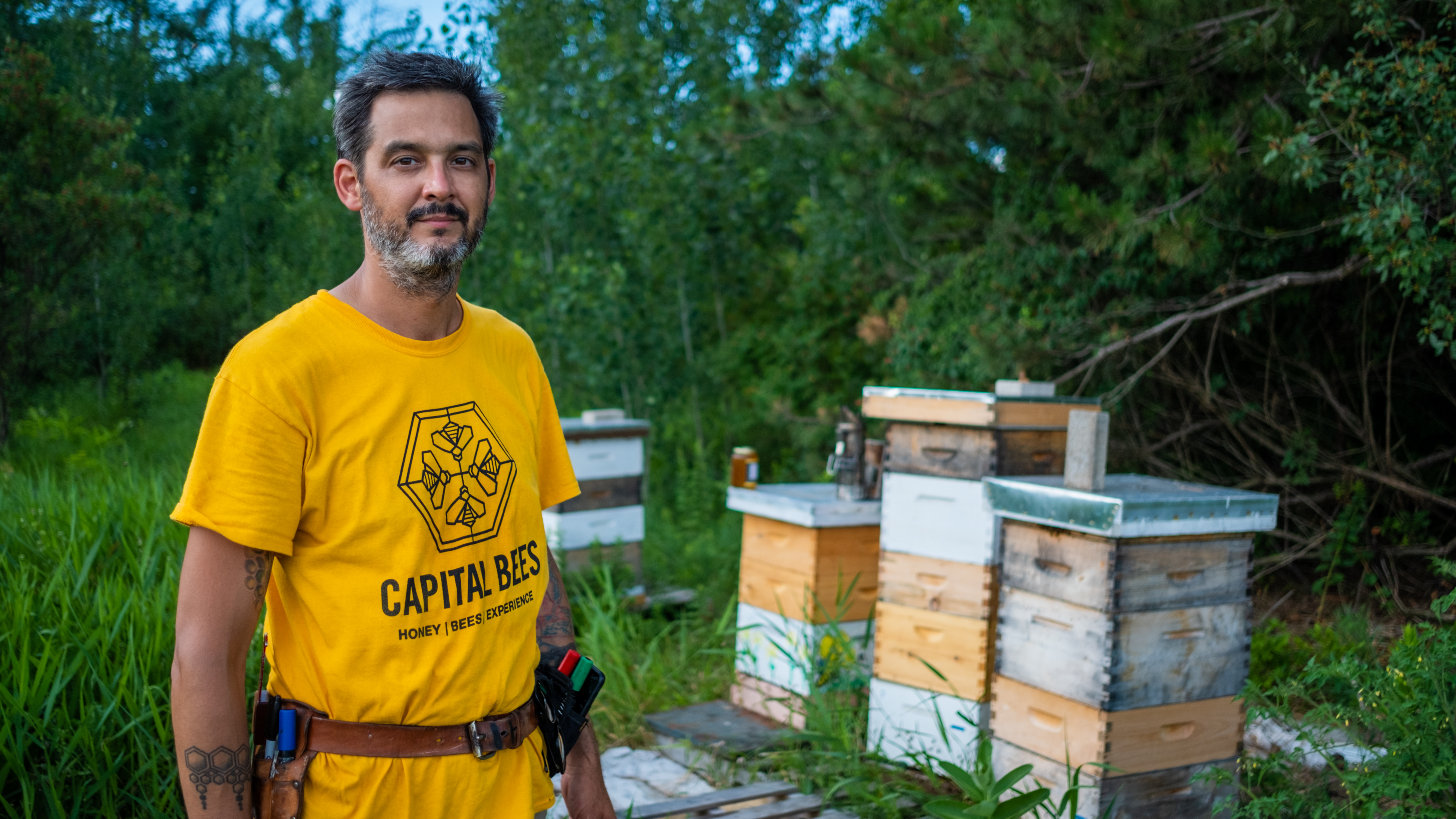
New interest
Although COVID-19 has set back his teaching plans, St. Louis is optimistic about passing on his fascination and knowledge of bees.
He’s heartened by the increased sales of his winter-hardy, locally bred bees this year, as apiarists struggle to purchase imported bees from places like Australia and Chile, in part due to pandemic restrictions.
Despite having to cancel formal workshops, he’s still hearing from a lot of people curious about beekeeping and wanting to learn more about it.
St. Louis hopes to return with workshops next year, because he said he wants to help people get it right, so new hives are well cared for and newbies aren’t getting discouraged by dying bees. He also warns that mismanaged bees can be vectors for disease.
“I want to help the beekeepers locally to keep good healthy bees, because it’s important for everybody.”
City Farmers
The pandemic has put food security in the spotlight as many look to better understand where the food they eat comes from, or even start growing it themselves.
CBC Ottawa is taking a closer look at a program for startup farmers at Just Food Farm. The Blackburn Hamlet plot is a place where they can experiment with new techniques and teach others some of what they’ve learned.
Click here to meet the Chinese-Canadian family mixing techniques and tastes from here and from home or the Burmese refugee family who says COVID gave them time together to teach the next generation how to farm.
